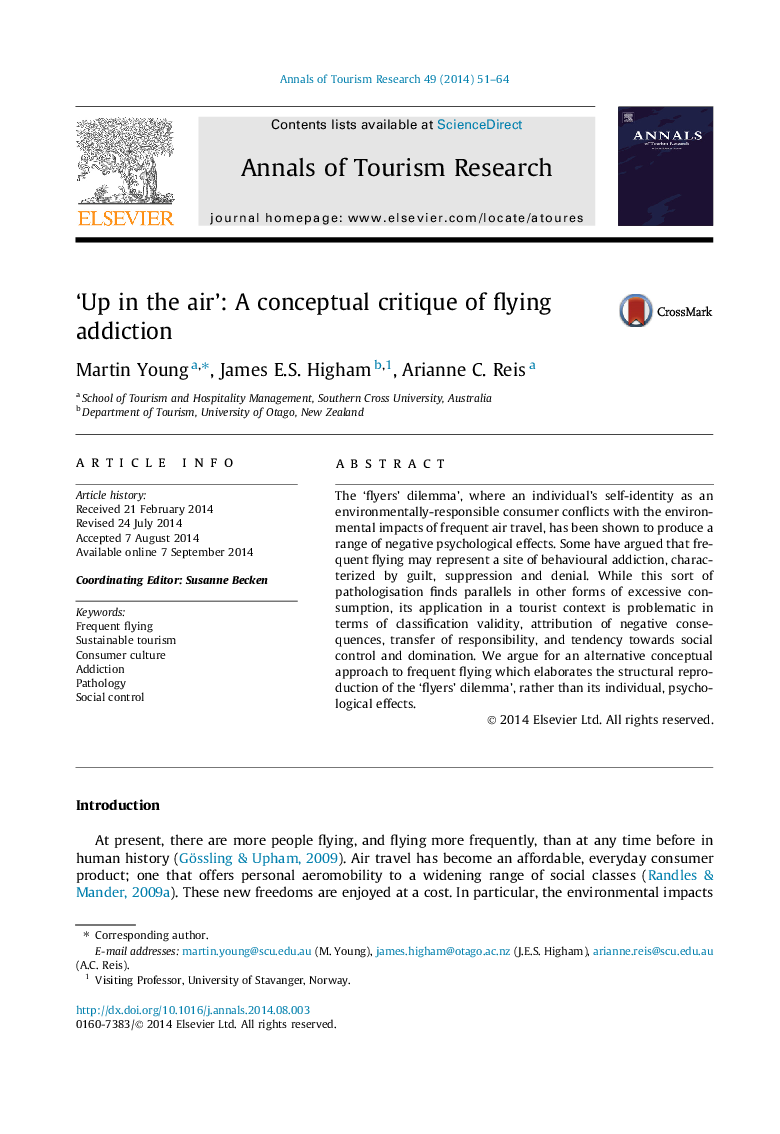| Article ID | Journal | Published Year | Pages | File Type |
|---|---|---|---|---|
| 1007049 | Annals of Tourism Research | 2014 | 14 Pages |
•Some have argued frequent flying can be a behavioural addiction.•The application of the addiction model to flying consumption is problematic.•The flying-addict trope blames individuals for environmental damage.•Flying ‘addiction’ is necessary for the ideological reproduction of air-capital.•We argue for a structural approach to the analysis of flying consumption.
The ‘flyers’ dilemma’, where an individual’s self-identity as an environmentally-responsible consumer conflicts with the environmental impacts of frequent air travel, has been shown to produce a range of negative psychological effects. Some have argued that frequent flying may represent a site of behavioural addiction, characterized by guilt, suppression and denial. While this sort of pathologisation finds parallels in other forms of excessive consumption, its application in a tourist context is problematic in terms of classification validity, attribution of negative consequences, transfer of responsibility, and tendency towards social control and domination. We argue for an alternative conceptual approach to frequent flying which elaborates the structural reproduction of the ‘flyers’ dilemma’, rather than its individual, psychological effects.
